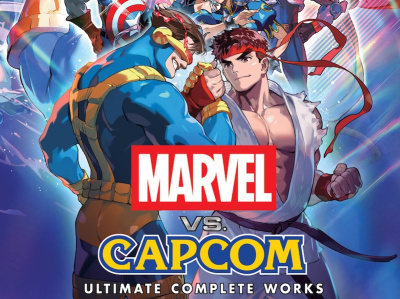 The Singer case raises an old question: how much should the personal behavior of creators influence our perceptions of their art?
The Singer case raises an old question: how much should the personal behavior of creators influence our perceptions of their art?Fans across the Internet barely had a chance to recover from hyperventilating over the X-Men: Days of Future Past trailer last week when news hit that the film’s director, Bryan Singer, had been accused of drugging and sexually assaulting an underage male back in the late 1990s. The alleged victim, now 31, filed a lawsuit against Singer last Thursday.
As allegations go, that one is a doozy. If true, it would taint Singer beyond redemption and make the simple act of going to see DOFP or any of his other films one fraught with moral ambiguity and compromise. Just leveling the charges within the publicity window of the film has already had a concussive effect, causing the studio to cancel Singer’s appearance at WonderCon last weekend and miss out on what was sure to be a huge surge in insider word-of-mouth energy.
Singer is, of course, entitled to the presumption of innocence. But regardless of how the legal system plays out in this case, this is fundamentally an old Hollywood story. The film industry has lived with the alleged and real transgressions of creators from Fatty Arbuckle to Woody Allen. There are unspoken ways that both the studios and audiences compartmentalize the sordid personal behavior and opinions of the talent from their on-screen work.
Nerd brands: this time it’s personal. Geek culture, particularly on the comics side, has always taken this stuff a bit more personally, perhaps because comics fandom existed as a smaller community. Since the 1960s, when Stan Lee began peppering the credit boxes in Marvel comics with alliterative nicknames, fans have taken an interest in the personalities (or, more accurately, the personas) of certain creators. Stan used this technique to build Marvel’s institutional brand, but smart artists and writers from those days till now have used this technique--which marketers today call "personal branding"--to advance their own careers.
One of the first and best at this is the artist Jim Steranko, who excels at using his raw charisma to generate interest in his work that far exceeds his actual output. He’s been doing it since the 1960s, but only recently discovered his true medium and platform, Twitter.
In the modern era, Neil Gaiman has tirelessly built a personal brand that belongs in a Harvard Business School case study. From his personal appearances, his media appearances, his social media presence and the way he generously uses his fame and status to boost other worthy projects, he has created a public persona that combines smarts, humor, social conscience, assurance and humility on top of his prodigious abilities as a storyteller. His fans will follow him anywhere, a fact not lost on anyone who employs his talents as part of their creative enterprise.
Gaiman’s success has paved the way for "nerdlebrities" of every stripe, including many with no obvious talents except the ability to craft an appealing public persona on top of the flimsiest achievements in the industry. Such is the power of branding in the social media age.
Card’s game busted. But personal brand is a double-edged sword, and creators sometimes find that their extracurricular activities can narrow, rather than broaden, their professional horizons.
Just about a year ago, DC Comics proudly announced a series of Superman stories penned by famous genre writers. At the top of the list was science fiction author Orson Scott Card, whose most famous work, Enders Game, was poised for release as a big screen blockbuster.
Turns out Card’s personal brand includes some controversial views on gay marriage. Though he was not accused of anything as heinous as sexual assault of a minor, Card served as an activist and figurehead for a political organization whose main goal was to ensure that certain citizens of the U.S.--including fellow creators at DC, and many of the people laboring to bring his works to the screen--would never enjoy the same legal rights and social opportunities as Card himself. There was a very real sense that any economic proceeds and increased fame that Card got from these projects would go toward advancing this political agenda.
Once this erupted into the public sphere, debate about Card’s personal political activism drowned out just about all discussion of the potential merits of his work on Superman, and probably also left a bad taste in the mouths of some people who would have otherwise considered going to see Ender’s Game.
Tainted love. Card took a hit for his political activities, but other creators are subjected to scrutiny based on personal behaviors. Convention culture has brought writers, artists and editors in the industry into personal contact with the fan community, and the plethora of blogs, Facebook groups and Tumblr sites guarantees that nothing stays quiet within the culture for long.
Recently we’ve seen several creators called out by name for sexual harassment, offensive activities toward women, and attempts to silence female fans and critics for expressing opinions in person or online. These stories haven’t reached everyone’s ears and lots of folks probably don’t care, but at least there is a mechanism for getting these stories out, so that those interested in holding perpetrators accountable can do so.
Critical distance. Should fans be influenced by the behavior of creators? It’s an old question, but it takes on new life when bombshell allegations force us into a very practical consideration of who we are supporting with our dollars when we buy a book or movie ticket.
One thing is certain: if creator brands are used to manufacture fan support and invest projects with an aura of personality as marketing differentiation, you can’t blame fans for basing decisions not to buy on the same outside criteria.
Rob Salkowitz (@robsalk) is author of Comic-Con and the Business of Pop Culture and a communications consultant in Seattle.
The opinions expressed in this column are solely those of the writer, and do not necessarily reflect the views of the editorial staff of ICv2.com.







